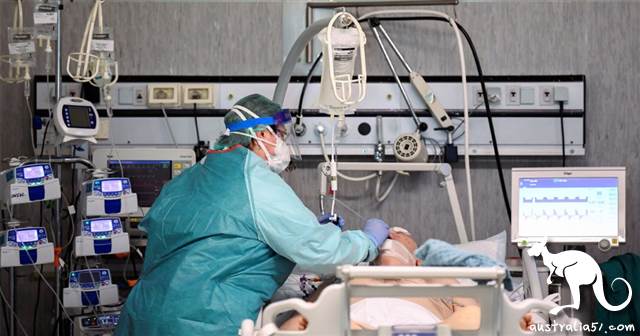
As of 26, at least 497.71 people were infected death, more than 9.68 million 4490 confirmed cases. Coronavirus can not only damage the patient`s respiratory system, it can also cause many complications, and other organ systems can be damaged in some cases, scientists said recently. Most horrendous of all, it is not just the difficulty of recovering a patient who has been recovered by a doctor, but the sequelae "may affect the patient in the coming years ".
"We initially thought it was a respiratory tract virus, but it turned out to attack other organs, such as the pancreas, the heart, the liver, the brain, the kidney ," said Topol (Eric Topol), director of the Scripps Research Center in California and a cardiologist, according to Reuters. These were unexpected things at first. "
In addition to breathing difficulties, patients can also be associated with thrombosis caused by stroke, associated with severe inflammation, resulting in multiple organs attacked. virus also causes complications to the nervous system, headache, dizziness, taste, olfactory loss, epilepsy and delirium.
These complications have a long recovery period and may not return 100 per cent to pre-morbid conditions, which may have a significant impact on the lives of patients. The diversity of Coronavirus performance is somewhat unique, says Sadiya Khan of cardiology at the northwestern medical center. Survivors may have to pay for the complications later.
Dr salisbury (Helen Salisbury) of oxford university points to another depressing news: although the epidemic usually disappears in two to three weeks, it is estimated that one in ten people will have longer symptoms. For many patients ," chest X radiographs are normal and there is no sign of inflammation ", but when they do exercises they were good at, they tend to feel breathless and breathless even taking the stairs.
Earlier, the Ministry of Foreign Affairs and the Health and Health Commission jointly invited Academician Zhong Nanshan to answer the "epidemic" for foreign students, saying :" As long as there is no basic disease, recovery will be rapid. Patients with new coronary pneumonia than SARS patients with pulmonary fibrosis is not too heavy, the former lung injury looks not too big, slowly will recover, so the sequelae are not large. "Although most patients recover slowly, some of the underlying sequelae can not be ignored.
At the beginning of March, Lauren Nichols, a 32-year-old woman, began to show signs of intense burning as she breathed like acid reflux. But she didn`t go to the doctor until it got worse, and finally her Covid-19 test was positive. But tell her it`s just the beginning. Over the next eight weeks, she developed a variety of symptoms, including chronic fatigue, diarrhea, nausea, tremors, headaches, attention difficulties, and short-term memory loss.
"Guidelines provided by the American Centers for Disease Control and Prevention (CDC) are completely inconsistent with my symptoms, which means that the medical community can not`prove` my symptoms ," she said. It also plunged me into a vicious circle of doubt, confusion and loneliness. "
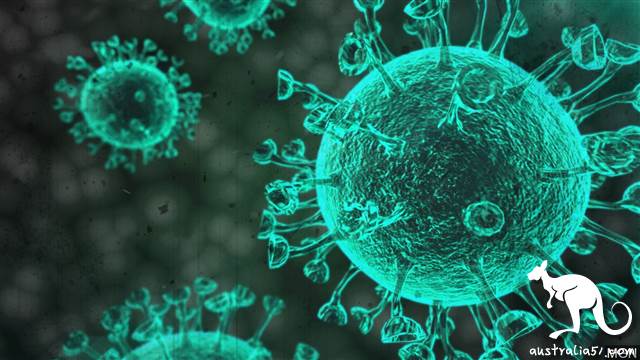
Coronavirus potential long-term health impacts
About 5 to 80 per cent of people in Covid-19 tested positive may be asymptomatic or appear only days or even weeks after testing, many of them with transient and mild symptoms. The World Health Organization says patients with mild conditions are expected to recover for more than two weeks, and those with severe or critical conditions are expected to recover in three to six weeks.
Because Covid-19 is a new type of disease, even the earliest patients recovering in China have only been a few months, so the long-term health trajectory of severe patients has not been studied. But doctors say new coronal virus can attach to cells in many parts of the body and penetrate many major organs, such as the heart, kidney, brain and even blood vessels.
"The difficulty we face is finding out the long-term impact ," said Dr. Joseph Brennan, a cardiologist at Yale University School of Medicine. "While some patients may recover completely, he and other experts are concerned that patients with neo-crown pneumonia may suffer long-term damage, including lung scars, heart injuries, neurological and mental health effects.
Some of the new patients need years to recove
According to the National Department of Health ,45 per cent of Covid-19 patients in need of continuous medical care ,4 per cent require hospitalization and 1 per cent require permanent emergency care. studies SARS( other coronal virus, such as severe acute respiratory syndrome) and MERS( middle eastern respiratory syndrome), and preliminary evidence obtained by the researchers suggest that some patients still need years to fully recover. Unfortunately, for other patients, this injury may never recover.
Certainly, we do not know that there are many sequelae, but there are some potential long-term effects that have emerged in some Covid-19 patients.
Pulmonary scar symptoms
During March, Melanie Montano ,32, tested positive for Covid-19. More than seven weeks after her first illness, she continued to develop intermittent symptoms, including burning and dry coughing.
Brennan says these symptoms occur because "virus produce an incredibly aggressive immune response, so the lungs are filled with debris and pus, making the lungs less flexible. "Normal lungs appear black on CT scans, while Covid-19 patients usually have lighter gray patches, or" frosted glass-like shadows ," which may not heal.
Our researchers have long discovered this. One domestic study found that 77% of Covid-19 patients had CT scans showing the lesion. Another study, published in the journal Radiology, suggested that 66 of 70 inpatients found some degree of lung damage in CT scans and that more than half of the patients developed lesions that could develop scarring. A third study showed that the lesion was not just present in critically ill patients. Of 58 asymptomatic patients ,95% had frosted glass-like shadows in their lungs. More than a quarter of people develop the symptoms in a few days.
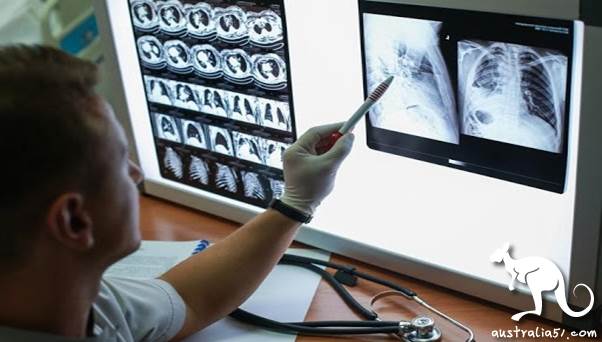
"A change in tissue can cause permanent damage ," says Ali Gholamrezanezhad radiologist at the University of Southern California`s Keke School of Medicine. "While it is not yet known whether permanent lung damage occurs in patients with persistent lung symptoms, doctors can learn more from those who SARS and MERS recovered.
A small longitudinal study published in the journal Nature followed 71 SARS patients from 2003 to 2018 and found that more than a third of the patients had residual lung scars, which could mean their lung capacity was impaired. the sequelae of MERS are somewhat difficult to infer because fewer than 2500 people are infected ,30% to 40% of them death. but one study found that about one third of the 36 MERS survivors also had long-term lung injury.
Gholamrezanezhad recently conducted a literature review on SARS and MERS, saying :" For this group, lung function will never recover, that is, their ability to perform normal activities will never return to normal levels. Moreover, Covid-19 scarring rates may ultimately be higher than those of SARS and MERS patients, as these diseases usually attack only one lung and Covid-19 appear to often affect both lungs, which also increases the risk of lung scarring.
he has seen residual scarring in Covid-19 patients and is therefore designing a study to determine which factors may expose some to a higher risk of permanent injury. He suspects that any type of lung disease or other health condition may increase the risk of long-term lung injury. In addition, he claims :" The older you get, the more likely you are to have scars on your lungs. "
Normal activity may become more challenging for people with these lung scars. "Climbing the stairs and other routine activities can make these people breathless ," Brennan said. "
Stroke, embolism and blood clots
An unexpected high incidence of thrombosis in many patients hospitalized for Covid-19 may be due to inflammation in the body. But these clots can lead to pulmonary obstruction, stroke, heart attack and other serious and lasting complications.
forming blood clots in the brain can cause a stroke. although stroke is more common in the elderly, stroke is now reported even in young Covid-19 patients. approximately 5% of Covid-19 patients hospitalized in Wuhan, have a stroke, and SARS patients have similar conditions.
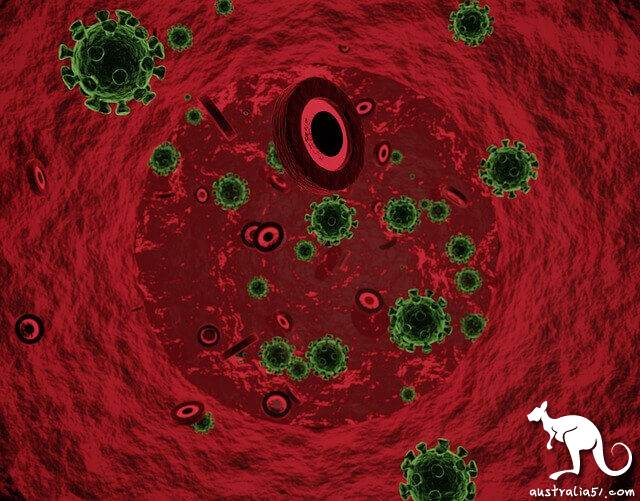
among young stroke patients, the death rate is relatively low and many can recover. But research shows that only 42 to 53 percent of people return to work.
Blood clots also cut off blood circulation in parts of the lung tissue, a condition known as pulmonary embolism, which can be fatal. two studies in france show that 23% to 30% of Covid-19 severe patients have concurrent pulmonary embolism problems. A study found that patients with pulmonary embolism developed symptoms including fatigue, palpitations, shortness of breath, and significant physical activity limitations.
Blood clots from other major organs can also cause serious problems. renal failure is a common problem in many Covid-19 severe patients, and dialysis machines are blocked by the patient`s blood clots. some of these acute kidney injuries may be permanent and require continuous dialysis.
Non-organ blood clots are also severe. For example, deep venous thrombosis occurs when blood clots form in the veins, and usually in the legs. Nick Cordello, a Tony-nominated Broadway actor, recently had to remove his right leg because of a clot with new coronary pneumonia.
Even after the patient recovers, blood clots are likely to cause abnormalities. Chicago, for example, a 32-year-old woman suddenly suffered from severe leg swelling a week after discharge death, which was caused by deep venous thrombosis. Another example is Troy Randall, a 49-year-old cardiologist in New Jersey, who was declared able to return to work after recovering from a stroke.
although data are still lacking, a study found that as many as 31% of Covid-19 severe patients have this problem. At the same time, the International Society for Thrombosis and Blood Stasis has issued guidelines requiring Covid-19 recovering patients to continue taking anticoagulant drugs after discharge.
Heart damage
Critical illness, especially hypoxia, can bring additional stress to the heart. Yet doctors now believe that virus may also cause inflammation of the myocardium in Covid-19 patients.
"In China, doctors notice that some people come with chest pain ," said Mitchell Elkind, president of the American Heart Association and professor of neurology and epidemiology at Columbia University. They first had a heart attack, then developed symptoms of new coronary pneumonia, and then tested positive. "
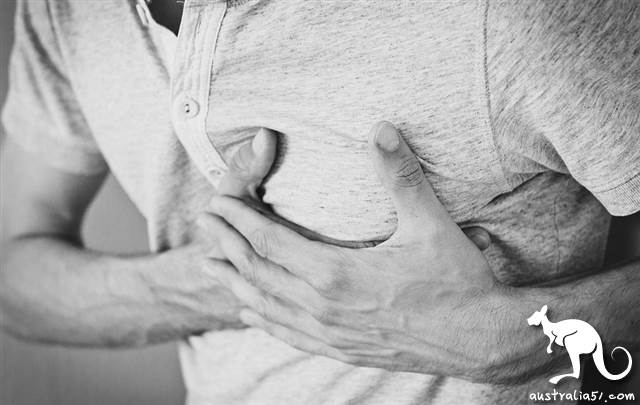
One study in Wuhan 1 month found that 12% of Covid-19 patients showed signs of cardiovascular injury. these patients had higher troponin levels, a protein released by myocardial injury. other reports suggest that Coronavirus may directly lead to acute myocarditis and heart failure.
Another study looked at 416 hospitalized Covid-19 patients in March and found that 19 percent of them showed signs of heart damage. researchers at the university of texas health science center warn that among survivors, Covid-19 may cause sustained cardiac damage and worsen existing cardiovascular disease, further increasing the risk of heart disease and stroke.
This was the case New York a doctor at Mount Sinai Hospital who recovered from her Covid-19 and found herself suffering from cardiomyopathy. The disease causes the heart to fail to deliver blood to the body. Although she was healthy before, when she returned to work, she couldn`t run around like before.
What happens to the patient depends on how the heart is affected. For example, Covid-19 is thought to have an association with myocarditis. In myocarditis, inflammation weakens the function of the heart and produces scar tissue, which makes oxygen circulation in the body more difficult. The Myocarditis Foundation also recommends that these patients avoid smoking and drinking alcohol and do not engage in strenuous exercise until approved by a doctor.
Impacts on neurocognitive and mental health
neo-crown pneumonia also appears to affect the central nervous system, with long-term consequences. A domestic study found that more than one-third of 214 Covid-19 patients diagnosed developed neurological symptoms during the illness, including dizziness, headache, impaired consciousness, impaired vision, taste/snowiness, and neuralgia. these symptoms are more common in severe patients with an incidence of up to 46.5%. Another French study found that 58 of 64 patients with severe Covid-19 had neurological problems.
neurological effects may be slightly delayed compared to SARS and MERS,Covid-19 patients. "While there are about 8,000 SARS patients worldwide, reports of neurological complications are limited and occur two to three weeks after onset ," Dr Andrew Josephson of UC San Francisco wrote in the Journal of the American Medical Association. "These include muscle weakness, burning or tingling, numbness and breakdown of muscle tissue. damage to the nervous system, including impaired balance, confusion and coma, is also associated with MERS.

Long-term complications of Covid-19, whether caused by the virus itself or by the inflammation it causes, can result in decreased attention and memory, as well as peripheral nerve dysfunction. "These nerves can affect the normal functioning of your arms, legs, fingers, and toes ," Elkind said. "
People receiving intensive care in hospitals also have other cognitive problems. For example, one third or more of ICU patients develop delirium. Studies have shown that delirium in severe patients may indicate a long-term cognitive decline in the future.
previous extensive studies on acute respiratory distress syndrome (ARDS) have shown that nervous system problems may occur in Covid-19 severe patients after discharge from hospital. studies show that one in five ARDS survivors still have cognitive impairment five years after discharge. persistent injuries may also include short-term memory problems, learning and executive dysfunction. This may cause people to have difficulty working or difficult to accomplish normal tasks on a daily basis.
ARDS survivors also have an increased risk of depression and anxiety, and many experience post-traumatic stress. While there is still a serious lack of data on the Covid-19, patients struggle with psychological stress for at least one year after recovery during the SARS outbreak.
"I feel like I`m being held in my own body, in my home ," Nichols said of her struggle with Covid-19." The public and even the closest people ignore me and misunderstand me a lot. I feel very lonely. "
The Covid-19 test of a nurse, who had taken care of AIDS more than a month ago was positive. And she`s still fighting fever, heart problems and nervous system problems, but she says the hardest thing is that she`s so tired of being treated as "a person who doesn`t know how to disassemble bomb, which is what people with AIDS experience. "It also increased her mental burden. "People need to know that the disease can persist and damage your life and health ," she said. No one knows what to do. "
Inflammation in children, male infertility and other possible long-term effects
mysterious symptoms of new coronal virus have been troubling scientists and patients. One of the strange symptoms of children who recently appeared in Britain, Italy and Spain included a rash, high fever, and heart inflammation.
On 4 May, the New York Municipal Health Bureau noted that at least 15 children developed these symptoms. these cases all showed a severe immune response similar to kawasaki disease. While only a few of these children Covid-19 tested positive, russell weiner, dean of the royal college of pediatrics and child health, told New York Times 》: " these symptoms are likely related to Covid-19. "Children recovering from these symptoms may develop myocardial and vascular complications in adulthood.
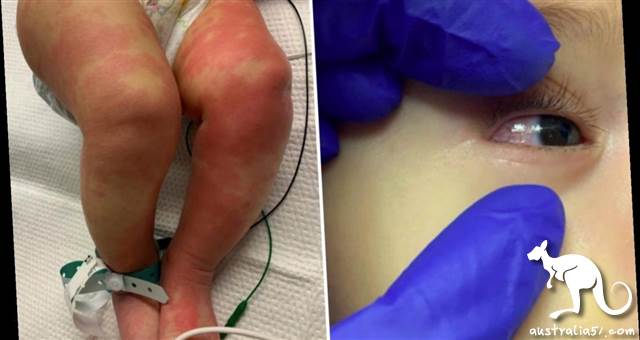
Other researchers believe that the special effects of Covid-19 on men may exceed their disproportionate death rate. "The testicles contain a large number of ACE2 receptors, so theoretically, Covid-19 can lead to male infertility ," Ali Laba explained in a recent letter to the World Journal of Urology. "Another study looked at 38 severe Covid-19 patients in China and found that 15 patients had semen samples containing virus RNA. in two of virus RNA,23 recovered patients during their illness
Another recent study also showed a decrease in the proportion of male hormones in 81 Covid-19 male patients, which may affect their future fertility problems. The researchers called for more attention to be paid to reproductive effects, especially in men of childbearing age. A paper published in the journal Nature on 20 April essay even suggested that "young men who plan to have children should be tested for fertility after recovering from new coronary pneumonia. "
Researchers are just beginning to figure out how virus infection affects other organ systems. For example, domestic researchers recently tested the blood of 34 Covid-19 rehabilitators. Researchers found that, regardless of the severity of the disease, many biological indicators "failed to return to normal" after the patient recovered and discharged from hospital. Most worryingly, the results suggest that their liver function will continue to be impaired.
What does this mean for survivors and researchers
All these preliminary studies show that little is known about the impact of virus on patients with new coronary pneumonia, such as what symptoms they may have, how long it will take to get back to normal, and what other measures we need to take on them.
Many people don`t even tell them when it`s safe to stop isolating themselves. Nichols and other survivors claim that they may feel better the day before, but the situation will get worse the next day.
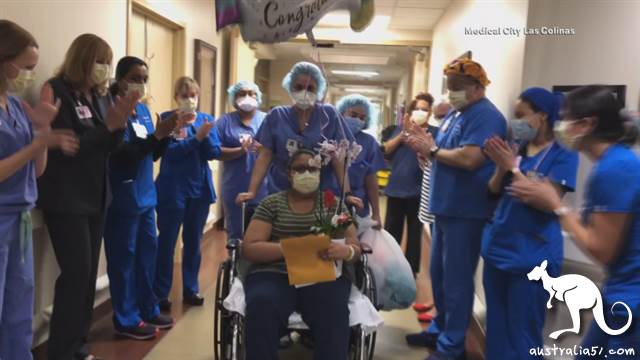
Coronavirus caused confusion in the medical system, and survivors said their own struggle with virus was difficult to draw attention to. "There is a serious lack of support from the health system and awareness of the impact of the disease ," Nichols said. Every day symptoms change like a roller coaster, full of many unknown. I may feel healthier today, but I may feel very weak and painful the next day. "

